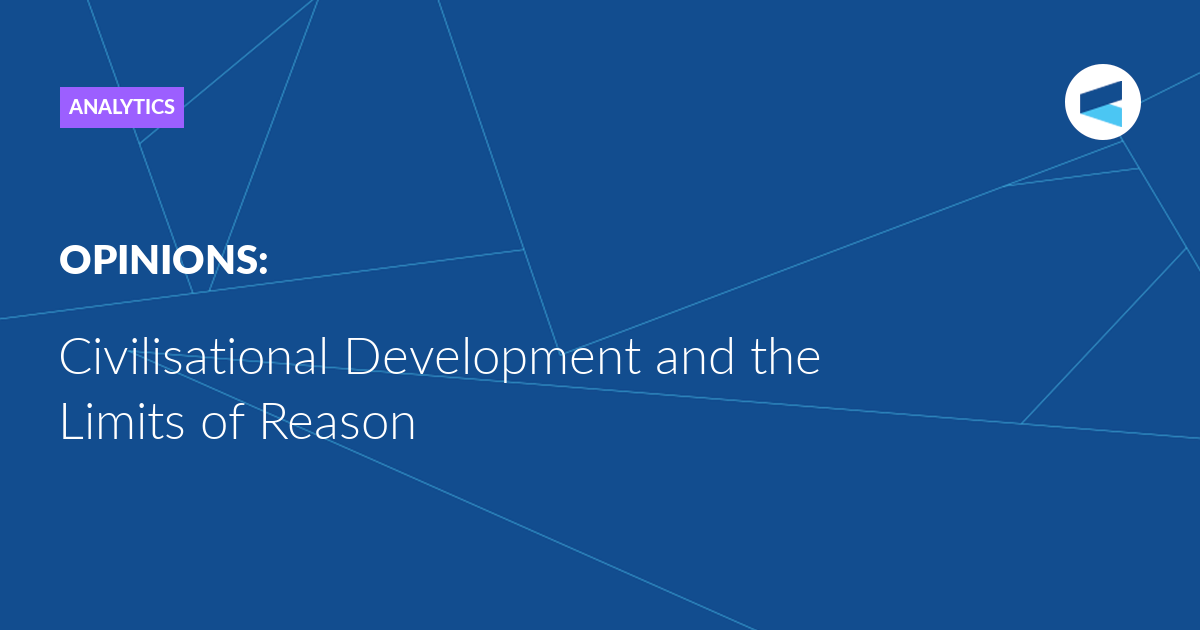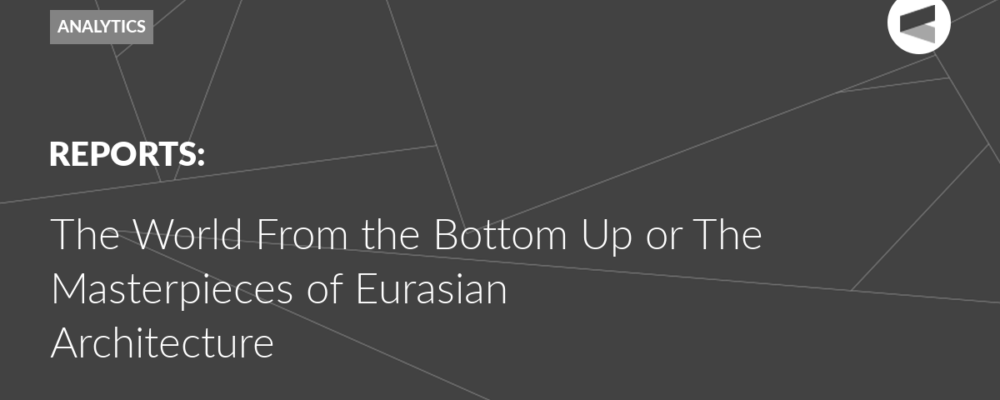Reason and individualism are important components of civilisational development, although they are not the only components. The key focus for discussions about the development of civilisation should therefore be the limits of reason. Is the pre-modern heavy luggage slowing down development, or is it the foundational building block of civilisation as the primordial instincts of human nature cannot be transcended?
The relationship between the modern and the pre-modern is the main issue when exploring the topic of sustainable development of civilisation. Does civilisational development entail the modern incrementally replacing the pre-modern or must modernity be built on the solid foundation of the pre-modern?
In the pre-modern era, society was organised on the foundation of religion, culture, and tradition to sustain the group identity and collective consciousness. In contrast, modernity is characterised primarily by reason and individualism, which arose with the Enlightenment, the Industrial Revolution, and liberal political revolutions.
Liberalism tends to consider civilisational development as the modern replacing the pre-modern. Reason replaces the instinctive, and individualism replaces the communitarian. John Stuart Mill cautioned against the “despotism of custom” as culture and traditions are an external authority that imposes constraints on the individual. Liberalism thus often scorns tradition as democracy for the dead as previous generations acquire intrusive influence over the present.
Yet, when building a society based on reason, it must be acknowledged that human beings are divided between reason and the instinctive, with the latter having evolved over tens of thousands of years. The principal instinct in human nature is to organise in groups for security and meaning — a foundation for a thriving civilisation. From this perspective, modernity can only exist and thrive if it is firmly rooted in the pre-modern.
Emilie Durkheim observed during the industrialisation of France in the 19th century that growing prosperity correlated with the rise of suicides. Similarly, how can we explain that the most developed state in the world today, South Korea, has the world’s lowest birth rate, among the highest suicide rates, and the state attempts to combat loneliness and the crisis of loss of meaning in society? The modern has exhausted the pre-modern. Much like a star, civilisations often shine the brightest when decadence has already commenced.
In the birthplace of European civilisation and democracy, Plato and Socrates cautioned that free societies would become increasingly free over time. This was a warning as freedom entailed the individual gradually liberating himself from all external authority and the hierarchies that sustained society. Freedom in its purest form would collapse society and replace democracy with tyranny.
Alexis de Tocqueville similarly referred to liberty and individualism as breaking the “chain” that connected all people in the pre-modern society, as the individual would seek to liberate himself from culture, family, and faith. In the victory of liberty, Tocqueville argued, the individual would “confine him entirely within the solitude of his own heart”. Yet, Tocqueville considered American democracy to be successful as the spirit of liberty coexisted with and was balanced by the spirit of religion. Nonetheless, Tocqueville believed that the balance between the pre-modern and the modern was fragile as liberty as a revolutionary ideology would over time free itself from the pre-modern such as religion.
The success of the liberal nation-state reflects a similar balance between the pre-modern and the modern. The nation-state is largely based on the legacy of the pre-modern, as a political construct formed based on a shared kinship, history, culture, tradition, and faith. The nation-state became a powerful and sturdy vessel for Western countries to develop liberal societies based on reason and individualism. This contrast or balance was the recipe for successful civilisational development. Although as Plato and Tocqueville would have warned, over time liberalism would gravitate towards victory by decoupling from the nation-state and thus destroy itself. The political scientist John Herz wrote in 1950 that international idealism “Paradoxically, [has] its time of greatness when its ideals are unfulfilled, when it is in opposition to out-dated political systems and the tide of the times swells it toward victory. It degenerates as soon as it attains its final goal; and in victory it dies”.
The contemporary divorce of liberalism from the nation-state represents the individual’s rejection of all imposition by external authority. Objective morality is replaced by moral relativism, the secular state transitions to radical secularism as Christianity is increasingly purged from society, unifying culture is replaced by multiculturalism, the family as the most important institution disintegrates, and the individual now even seeks to liberate itself from biological realities with the current gender ideology. As the individual increasingly identifies solely by itself, it produces a toxic combination of narcissism and nihilism that plagues social cohesion.
The balance between the citizens’ rights and duties collapses with unpredictable consequences as morality and meaning largely derive from the sense of duty to the group. Political liberalism was born in the French Revolution under the slogan of “liberty, equality, fraternity”, yet the communitarian ethos of fraternity is rarely acknowledged anymore as a condition for liberal ideals to survive.
Culture represents the roots that sustain civilisations as it unites the group, ties people to a shared past, and culture is also what is worth transferring to the next generation. Max Weber warned that the rationalisation of culture would create a cultural crisis as what we pass on to the next generation is usually based on the divine and permanent, and rarely based on reason. Michelangelo’s paintings in the Sistine Chapel have been a cultural pillar for centuries and contributed to the development of civilisation. If Michelangelo had been born in the present time, devoted solely to reason, he would likely have used his artistic skills in crude commercial activity such as advertising without any contribution to culture.
With the “Death of God”, Friedrich Nietzsche recognised there would be a crisis of meaning as people increasingly turned away from religion. The concern for Nietzsche was that the pre-modern was dying without being replaced by something from modernity to sustain meaning, which would introduce nihilism. Fyodor Dostoevsky’s Raskolnikov similarly exemplified the fragility of secular morality as reason could justify murder as divine principles were replaced with moral relativism.
Reason and individualism are important components of civilisational development, although they are not the only components. The key focus for discussions about the development of civilisation should therefore be the limits of reason. Is the pre-modern heavy luggage slowing down development, or is it the foundational building block of civilisation as the primordial instincts of human nature cannot be transcended?
The Valdai Discussion Club was established in 2004. It is named after Lake Valdai, which is located close to Veliky Novgorod, where the Club’s first meeting took place.
Please visit the firm link to site






